In Mandalay, one of the worst-hit places near the epicentre of the quake, devastation is widespread and bodies have piled up at crematoriums.
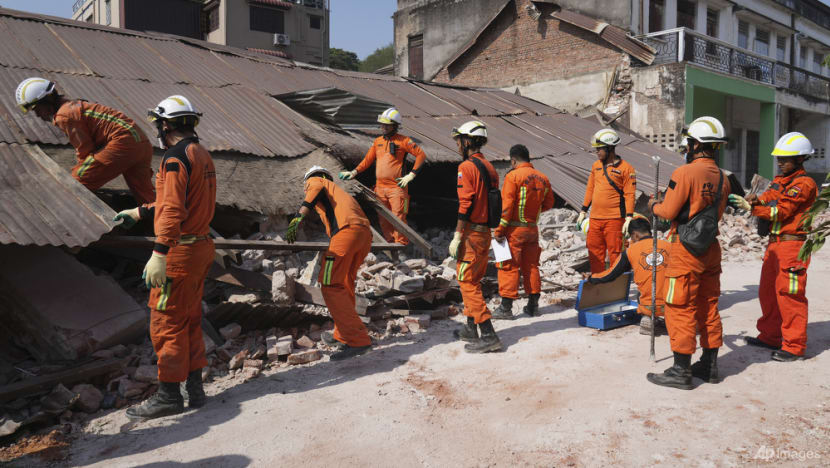
Myanmar rescuers work through rubble of a collapsed building following an earthquake, in Naypyitaw, Myanmar, Apr 1, 2025. (Photo: AP)
New: You can now listen to articles.

This audio is generated by an AI tool.
MANDALAY: Rescuers are pressing on days after a powerful earthquake ripped through central Myanmar, even as hopes of finding more survivors are fading quickly.
The so-called golden window – the immediate 72 hours to reach trapped victims – has passed, following which the chances of survival without water diminishes rapidly.
In Mandalay, one of the worst-hit places near the epicentre of the quake, devastation is widespread and bodies have piled up at crematoriums.
In the middle of the city where the Great Wall Hotel collapsed, Hnin Hnin Shwe watched in desperation as members of a Chinese search-and-rescue team clawed through debris.
The Yangon native was visiting Mandalay with her family when the 7.7-magnitude earthquake struck. Her husband and two young daughters – two and seven years old – are still missing.
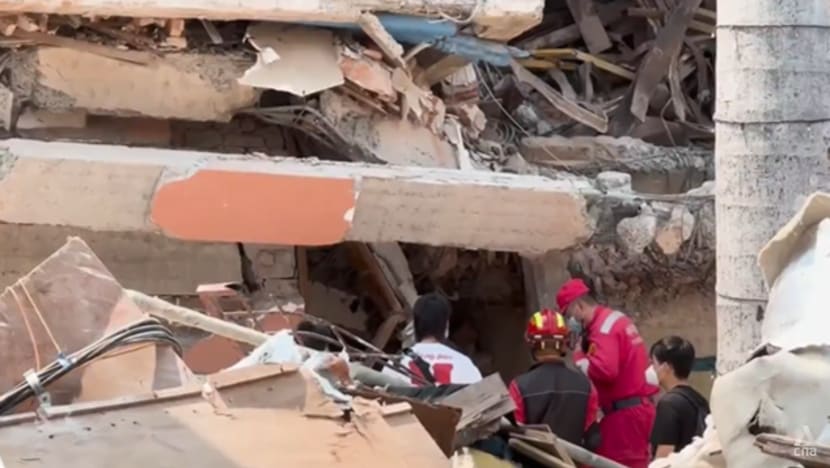 Chinese search-and-rescue personnel work at the collapsed Great Wall Hotel in Mandalay.
Chinese search-and-rescue personnel work at the collapsed Great Wall Hotel in Mandalay.
“I have not been able to eat after this happened, I cannot eat at all,” she told CNA, her voice raw with anguish.
“But the sight of this hotel reminds me that I have to eat. I tried to eat. I told them (my family): ‘Mama is coming to you. I am doing everything in my power. Stay strong, my loved ones.’ I am hanging onto this belief.”
MINUTE OF SILENCE
Myanmar on Tuesday (Apr 1) held a minute's silence for those who lost their lives in the country’s worst earthquake in more than a century.
Sirens blared across the nation at 12.51pm local time, marking the exact time of the earthquake that struck last Friday.
The army has declared a week of national mourning, with flags flying at half-mast on official buildings until Sunday.
More than 2,700 were killed and the number is expected to increase to over 3,000, military leader Min Aung Hlaing said. He added 4,521 people were injured and 441 were missing.
It is feared the true scale of the damage has yet to emerge and the death toll could rise even higher.
In Mandalay, Myanmar’s second-largest city, hospitals are overwhelmed, as injured victims endure long waits for medical treatment.
Member states of the Association of Southeast Asian Nations (ASEAN), alongside other countries including China, India, Russia and Belarus, have deployed rescue teams and humanitarian aid to Myanmar.
SLEEPING ON THE STREETS
For those who made it out alive, their struggle is far from over.
Many have lost their homes and loved ones, and some are grappling with post-traumatic stress.
“We escaped death, and that was a close call,” said one survivor who managed to get out after being trapped inside a collapsed building.
“Our family had to struggle so hard to free ourselves. We almost lost our sanity in the process. I feel so empty inside.”
Another local said: “I have not slept well for two days now. My heart rate remains very high. Whenever I step into a building, I worry it might collapse on me.”
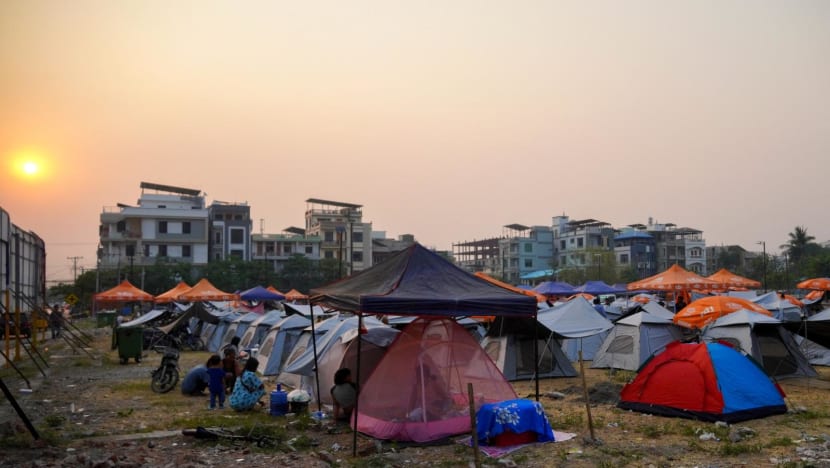 People take shelter in a makeshift tent camp, following a strong earthquake in Mandalay, Myanmar, Apr 1, 2025. (Photo: REUTERS/Stringer)
People take shelter in a makeshift tent camp, following a strong earthquake in Mandalay, Myanmar, Apr 1, 2025. (Photo: REUTERS/Stringer)
Residents have been living in fields and along the streets, without running water or electricity, fearing aftershocks could topple more buildings.
Humanitarian organisations have raised alarm about the shortage of shelter, food, water and medicine.
“I live on the street now. I eat whenever I can. If someone gives me food, I will take it. If someone offers water, I will drink it,” said a local.
AID DELIVERY HAMPERED
Emergency teams and international crews have been working tirelessly to help victims and deliver critical aid.
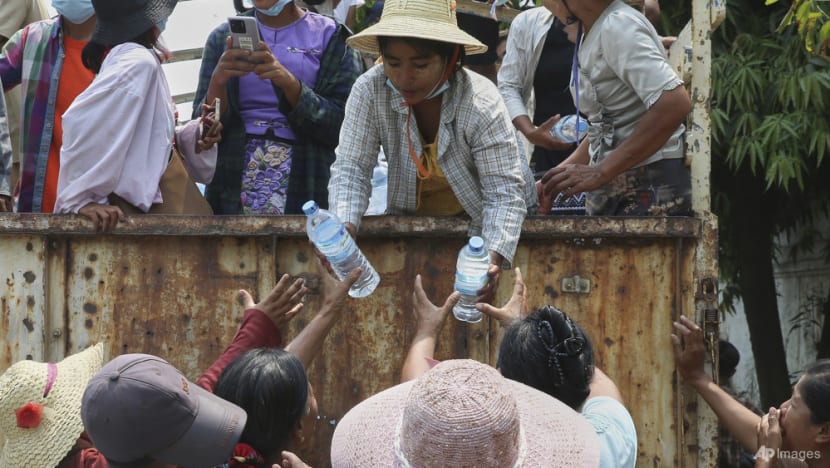 Volunteers distribute water to people affected by the earthquake in Sagaing, Myanmar, Apr 1, 2025. (Photo: Xinhua via AP/Myo Kyaw Soe)
Volunteers distribute water to people affected by the earthquake in Sagaing, Myanmar, Apr 1, 2025. (Photo: Xinhua via AP/Myo Kyaw Soe)
But response efforts have been complicated by severe damage to roads and bridges, a lack of equipment, and power and communication outages.
Myanmar’s humanitarian situation – already dire from an ongoing internal conflict – has been made worse by the quake.
Since the military junta seized power in a February 2021 coup, the country has been locked in a bloody civil war.
After reports emerged that the army was blocking supplies to areas it does not fully control, humanitarian organisations and rights groups have urged Myanmar's military to provide “unfettered access” to aid.
They also warned that people in Myanmar could face further displacement when the monsoon season arrives in as soon as a few weeks.






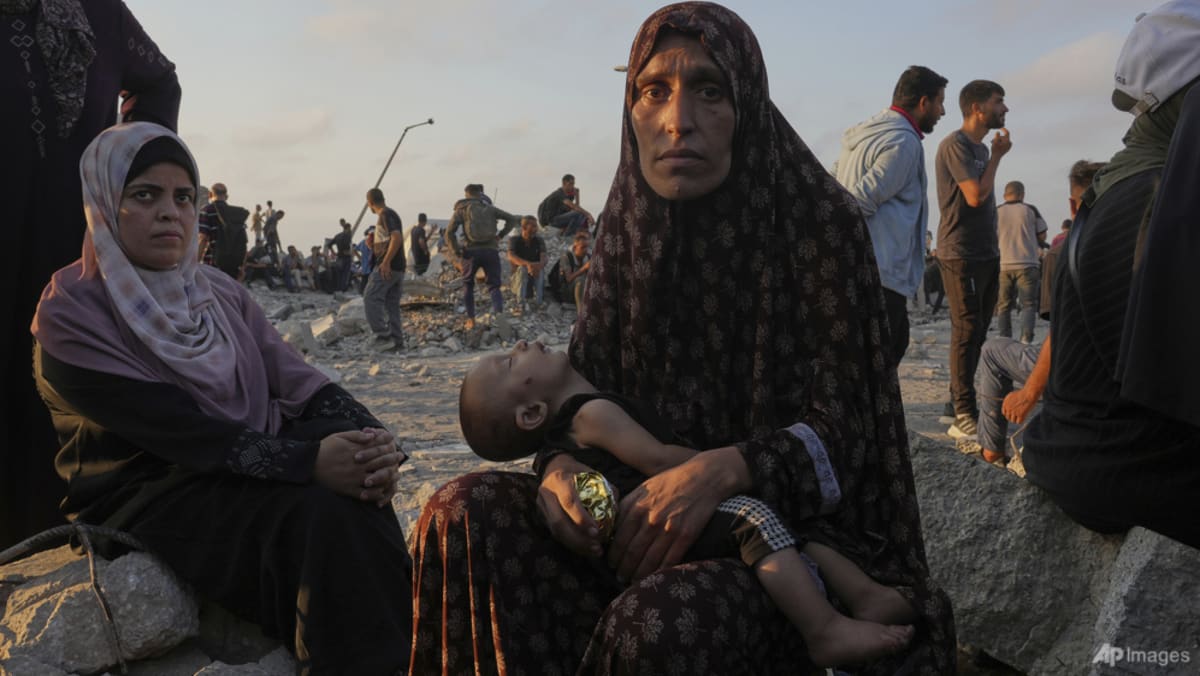
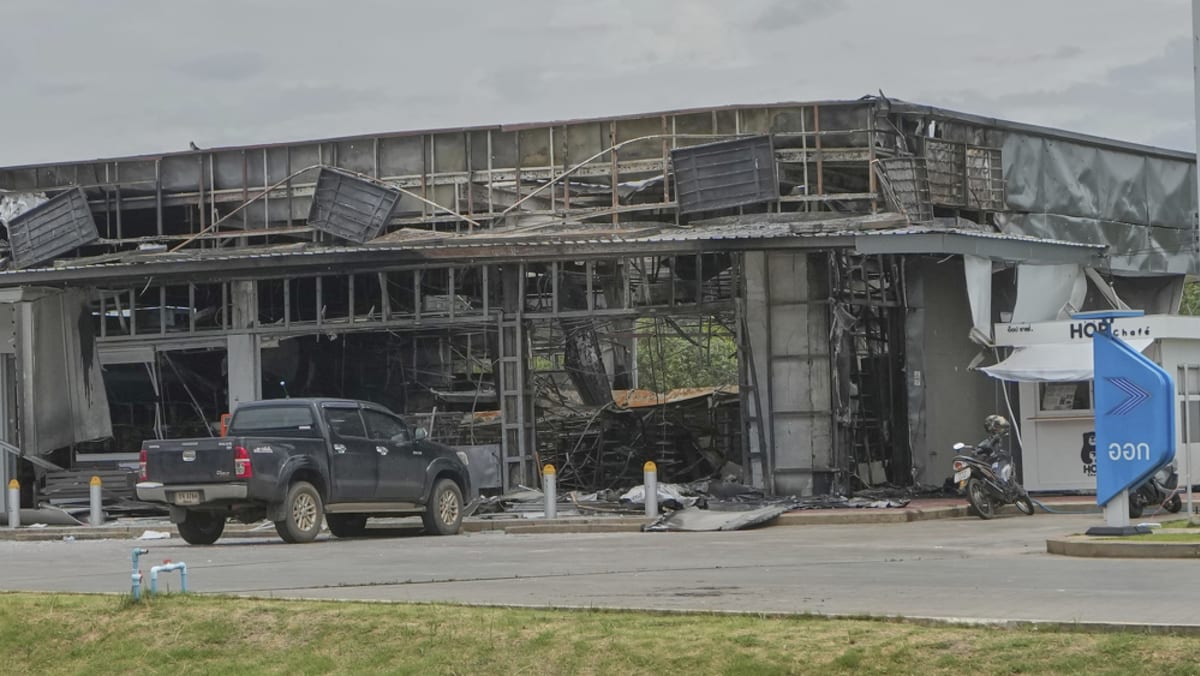

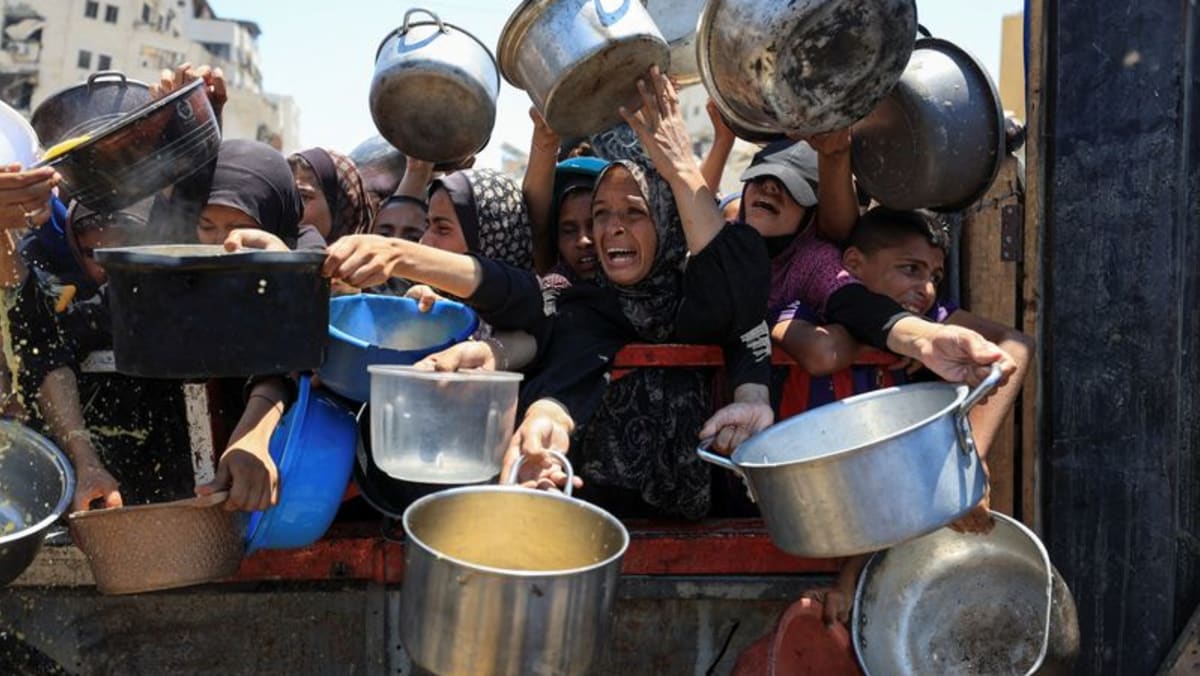




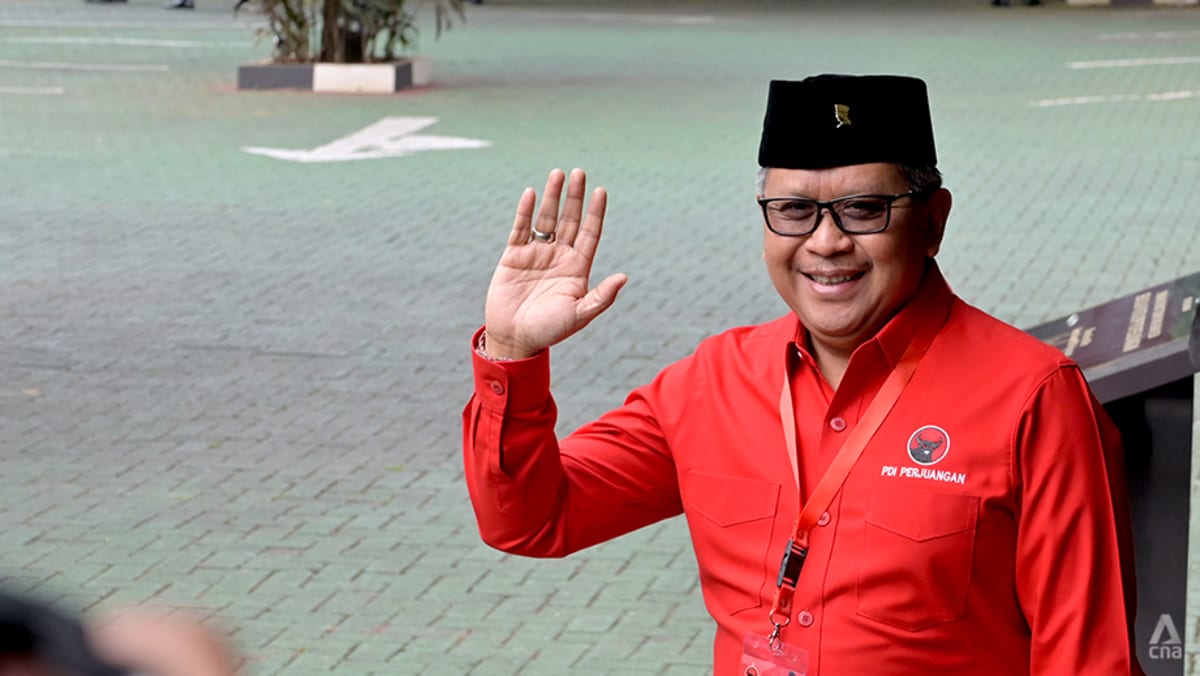
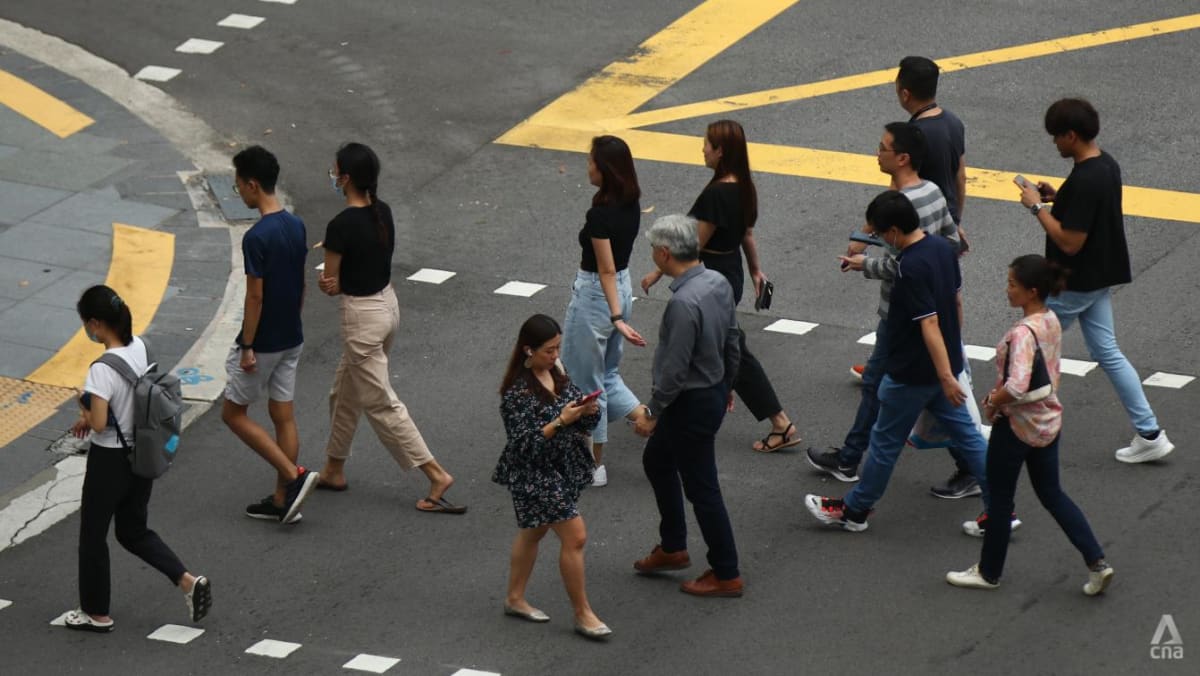

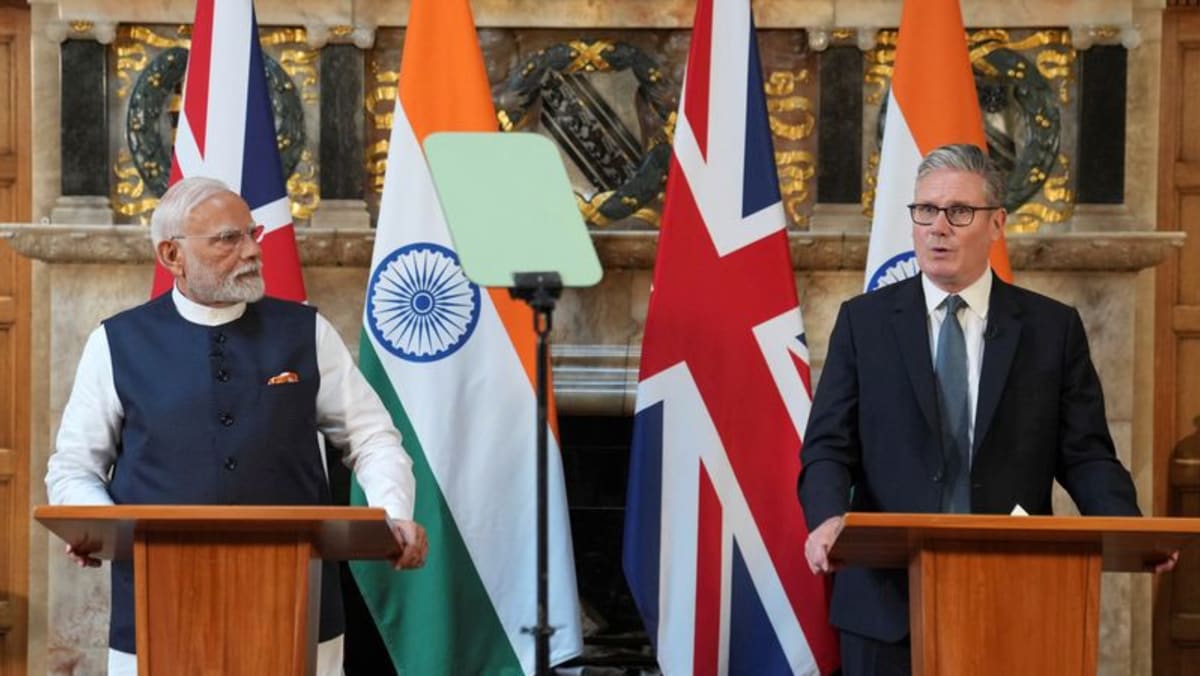

















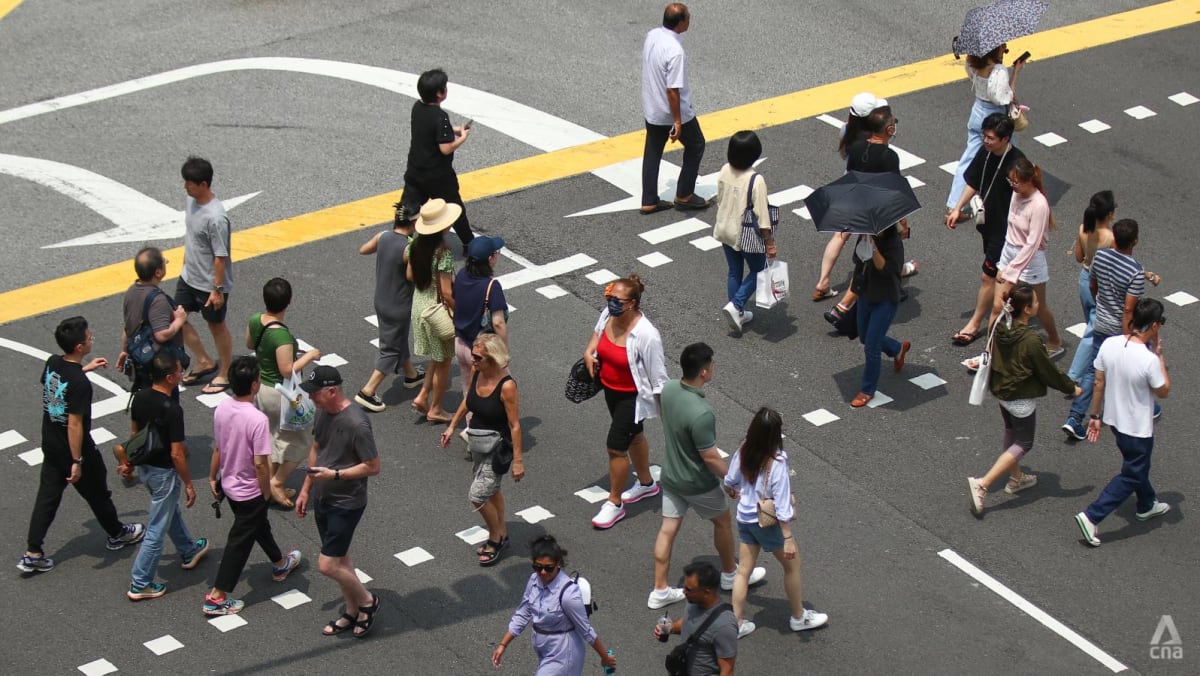













.png?itok=erLSagvf)

